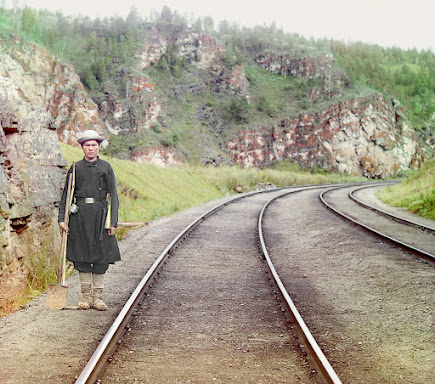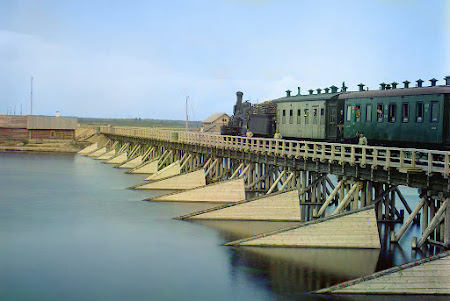Thursday, September 22, 2022
After a flurry of posts regarding Russia-Ukraine in the winter and spring, I haven't had much to say in recent months. As I'd expected, invading Ukraine proper proved to be a much messier and difficult affair than the annexation of the Crimea.
Now, with Russia planning hastily-organized referenda in Eastern Ukraine and more public criticism of the war emerging in Russia following the announcement that Moscow will call up as many as 300,000 reservists, it feels like there could be some changes coming.
It's interesting the way Putin frames things. He's continually presented the "special military operation" as an ultimately defensive measure, something designed to protect Russians threatened by "nazis" in Ukraine. That's what he's doing with the proposed referenda, too--by making them part of "Russian" territory, at least rhetorically, future battles with Ukraine in those regions become actions undertaken to defend Russia.
Is this a sign that Russia has already given up on conquering any territory further west or south? Probably not. And the referenda could also be a means of attempting to shore up support among separatists who have been fighting on behalf of Russia for years. They don't want to be left in the cold if Russian forces end up retreating. Anything that looks like a more secure commitment to stay and defend those territories will help keep Russia's local allies in Eastern Ukraine on board.
Now the line from the Kremlin is that the West seeks to break up Russia, just as the USSR was broken up. It's an interesting claim, one that does have some resonance. For years, I've listened to Tatar-language Radio Azatliq, which is operated by Radio Free Europe. In Tatar "azatliq" means "freedom," and is a term associated with the independence movement that was popular among some Tatars in the 1990s. And the prospect of the Russian Federation itself breaking up was very much a possibility at that time, with republics from Tatarstan to Tuva taking as much power for themselves as they could--never mind the fact that Moscow had effectively lost control of Chechnya for years.
So, the prospect of a Western-backed Russian breakup, or at least a breakup of some sort, is not an eventuality that is entirely without possibility in the eyes of even people who aren't Putinite Kool-Ade drinkers.
On the other hand, Putin himself is creating risks for not only himself and his regime, but also the Russian Federation, which is clearly under some stress. Putin has never been a populist or a nationalist. Rather, he sees himself as a re-builder of Russia. He's a behind-the-scenes guy who stakes his reputation on protecting Russians through his competence--like Danila Bagrov in the Brat movies.
But when that competence no longer delivers, what happens?
There's certainly a history in Russia of even the most stable-looking leader suddenly and spectacularly being swept away. The Revolution of 1905 is typically associated with Russia's crushing defeat against Japan, but of even more importance was all of the economic and social change that had been taking place in Russia over the previous fifty years. But in the earliest years of the 20th century, Nicholas II had appeared as one of the most secure monarchs around. While the tsar managed to reconsolidate power from 1907 onward, ultimately crushing the forces with whom he had compromised two years earlier, 1905 was just the first shoe to drop, with the other coming twelve years later, with Nicholas' abdication coming within just a matter of days after demonstrations against him began.
The collapse of the Soviet Union is the other classic example of a leader--and a whole system--falling apart much more dramatically and suddenly than anyone had expected. In the immediate aftermath of the coup attempt against Mikhail Gorbachev of August 1991 being overturned, it became clear that Gorbachev would still have to go.
What did the Russian Empire of the late 19th and early 20th centuries and the USSR have in common? In both cases, there was a concerted and consistent effort to modernize the country in every way but one--politically. Russia in its immediate post-serfdom decades became one of the hottest spots for foreign investment in Europe, industrializing at a pace that was outdistanced only by the United States. Yet the thinking was that Russian subjects would simply be grateful that they were now better educated, more worldly, and more mobile and urban. Instead, these consequences of Russia's economic growth and growing sophistication in the late 19th century contributed to the revolutions that would come in the early 20th century.
These incidences of sudden collapse in the Russian Empire and the USSR remind me a bit of Iran, where there was a similar effort, under the Shah, to modernize in every way but one. But there, too, people didn't just thank the Shah for building more hospitals and schools, or sending students to universities in France and the US to study engineering. Rather, these people went back to Iran with more demands to make of the government. The Shah had created his own opposition.
News agencies in the West have been giving a lot of play to the cracks in the security-enforced silence regarding the war in Russia. A petition among municipal government officials demanding Putin's resignation. Denunciation of government policy on evening television. Alla Pugacheva's Instagram post. And now the return of protests against the war for the first time since the invasion's earliest days.
Sure, people get hopeful every time there are protests against Putin. That doesn't mean he'll go. He could be around for years yet.
But if people start thinking that with Putin "there is no there there," what will there be--other than the security forces--to keep people in line? He's not a monarch. There's no ideology associated with Putin. He's just a calculating man in a suit whose bargain with the Russian population is that he'll make their lives better and bring more stability if only they leave him alone. If he isn't delivering, then there's nothing to save him other than brute power.
It's not like there is no precedent for a sudden collapse. And what would happen then?
My guess is that it wouldn't necessarily get a lot better. There's no reason to assume that the successor to Putinism would be Jeffersonian democracy. However, given the current conditions--with Putin threatening to use nuclear weapons and his army apparently targeting Ukrainian nuclear reactors--it's hard to imagine a leadership situation in Moscow that could be much worse than what we have now.
Are you a Turk across empires? Order a copy today, then get another one for your library.
More commentary, photos, and links can be found in the Borderlands Lounge.
***
Also see:
All Crimea/Ukraine posts since 2008
Back and Forth in the Quagmire
A "Mission Accomplished" Moment?
More Thoughts Re Ukraine and NATO
Looking for the Long-Term in Putin's Moves
Moscow Recognizes Two Breakaway Republics: Why do this?
The Monroe Doctrine, Putin, and Post-Soviet Space: Don't Muddy the Waters
South Ossetia and the Fate of the 'Mini-Republics' (from 2008)






No comments:
Post a Comment